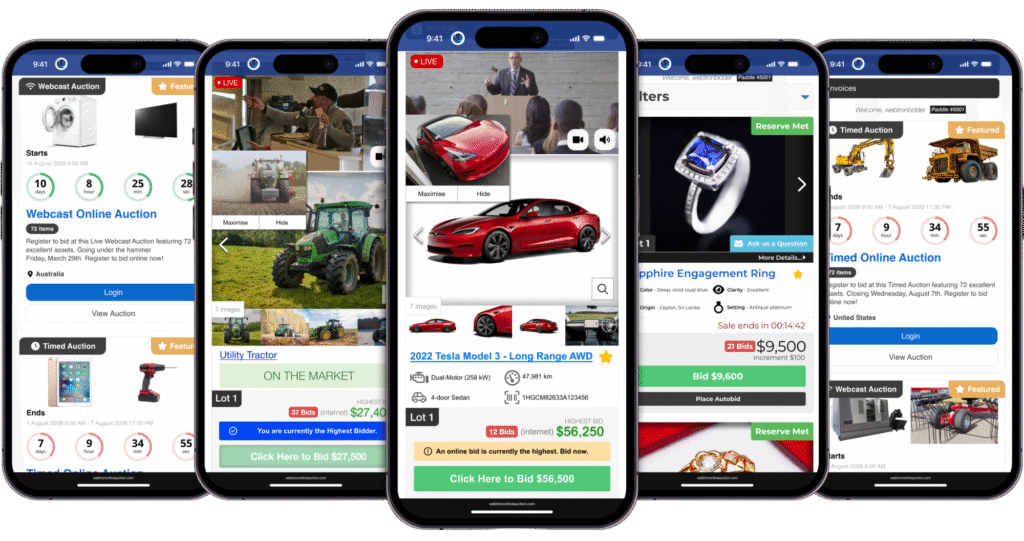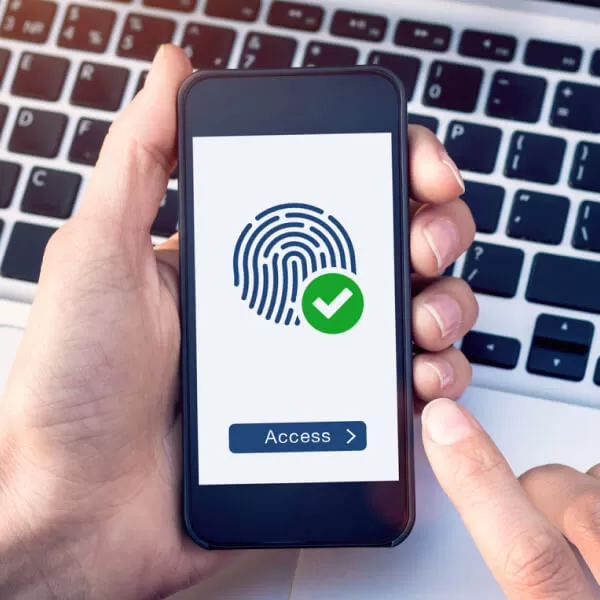
Webtron's Innovative New
Auction Technology Options in 2026

Processing
Why Your Digital Assets Should Be Auctioned: The Case for Digital Rights Auctions and Their Ideal Use Cases
In an increasingly digital economy, the value of digital assets has soared. From NFTs and digital art to music rights, domain names, and proprietary code, digital goods are being bought, sold, and traded with the same intensity as physical ones. However, one major gap remains: how we manage the buying and selling process of digital rights. This is where digital rights auctions come into play—a method that brings transparency, competition, and fair market valuation to an often opaque marketplace.
What Are Digital Rights Auctions?
Digital rights auctions are the online sale of ownership, access, or licensing rights to digital assets, conducted in a competitive bidding environment. These rights might include full ownership, time-limited usage, reproduction licenses, or distribution rights. Rather than private negotiations or static “Buy Now” pricing, auctions allow the market to decide the value of an asset dynamically.
Whether the asset is a high-profile domain name, a music license for sync in advertising, or tokenized IP in the form of an NFT, a digital rights auction provides a controlled, transparent, and time-sensitive mechanism to discover its true value.
Why Use Auctions for Digital Rights?
True Market Valuation Through Competition
One of the most powerful reasons to auction your digital rights is to allow demand to dictate price. In a fixed-price setting, you risk undervaluing your asset or scaring away potential buyers. An auction not only invites open competition, but also builds urgency and emotional investment, especially during the final bidding stages.
Transparency and Fairness
Auctions provide an indisputable record of who bid what and when. This transparency is especially critical in high-value transactions involving intellectual property, media rights, or NFTs, where disputes and valuations can be contentious. Everyone plays by the same rules, and the outcome is based on merit, not backroom deals.
Liquidity for Rare or Niche Digital Assets
Some digital assets—like archived stock footage, retro software licenses, or web3 game items—may not have a large pool of buyers, but they do have intensely motivated ones. Auctions help these sellers tap into a niche global audience, maximizing exposure and return in a short window.
Smart Contract Integration and Automation
Modern auction platforms can integrate smart contracts (especially on blockchain networks), ensuring instant, tamper-proof settlement once a bid is won. This reduces legal overhead, middlemen costs, and the risk of non-payment or fraud.
Data and Buyer Intelligence
Auction platforms can offer valuable data post-sale: who bid, how much demand existed, and which assets saw the most engagement. This is invaluable for creators and rights-holders, enabling more strategic monetization in the future.

Which Digital Assets Are Best Suited to Online Auctions?
Not all digital assets benefit equally from auctions. The following categories tend to perform particularly well in a rights-based bidding system:
Domain Names
High-value or keyword-rich domain names (e.g. hotels.com, crypto.io) are ideally suited to auctions. With broad utility and significant commercial impact, these domains often attract multiple bidders and escalate in price quickly.
Digital Art and NFTs
NFTs representing digital artwork, 3D models, or tokenized media have already proven successful in auction environments. The scarcity and uniqueness of these assets lend themselves to competitive bidding, especially when tied to notable artists or cultural moments.
Music Rights and Sync Licenses
Musicians, producers, and rights managers can auction sync rights for use in commercials, films, games, or YouTube videos. This is especially effective for independent artists looking to monetize their back catalogue or unreleased material.
E-books and Publishing Rights
Authors and publishers can auction foreign translation rights, audiobook licenses, or serialized publication rights to digital platforms. This is particularly useful for bestselling authors or niche technical books with dedicated audiences.
Proprietary Software and Code Libraries
Startups and developers may find buyers for discontinued apps, legacy code, or unique scripts through rights auctions. Buyers benefit from ownership or licensing of functioning, field-tested code without development time.
Photography and Stock Footage Rights
If you own a library of digital photography or video content—especially archival, travel, or commercial-use footage—you can auction reproduction rights to agencies or direct clients.
Social Media Handles and Online Real Estate
While some platforms restrict sale of usernames, others—like YouTube channels, Twitch accounts, or Discord servers—may allow rights transfer under specific terms. These high-visibility assets can command premium prices in auctions.
In a landscape where digital assets are becoming as valuable—if not more so—than physical ones, rights auctions offer a modern, dynamic, and efficient method of monetization. They eliminate pricing guesswork, offer transparent dealings, and give creators and rights-holders unprecedented control over their digital inventory.
Whether you’re a musician selling sync rights, a domain flipper, an NFT artist, or a startup with a valuable codebase, digital rights auctions unlock the full value of what you own. As digital ownership continues to evolve, so should the way we buy, sell, and license the assets that define our digital age.
If you’re not auctioning your digital rights, you may be leaving serious value on the table.
FAQS
Webtron provides specialised auction software solutions designed to handle digital rights auctions, including copyrights, patents, licenses, and other intangible assets. The platform ensures accurate listings, transparent bidding, and secure transactions.
Webtron stands out because its solutions are tailored to the complexities of digital rights auctions. Features such as secure bidder verification, advanced cataloging, and robust reporting tools give auctioneers full control when managing intellectual property assets.
Sellers save time with simplified cataloging and professional presentation of digital rights, while buyers benefit from an intuitive interface that makes it easy to review assets, place bids, and complete purchases confidently.
Webtron supports multiple currencies, languages, and time zones, making it ideal for international auctions of intellectual property and digital rights. The platform scales effortlessly whether selling niche licenses or global portfolios.



